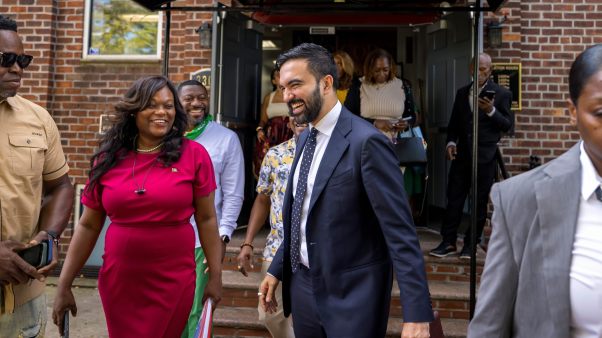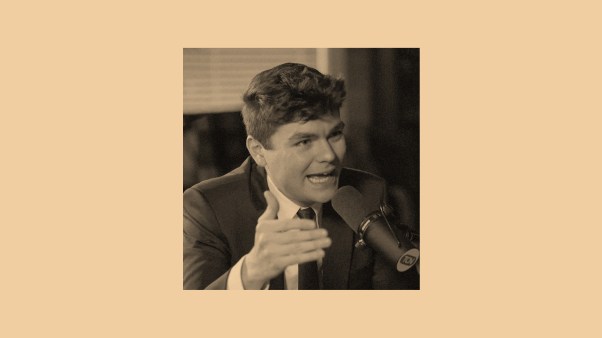Samuel Adams: A Life Ira Stoll (Free Press, 2008) 352 pages, $28
Samuel Adams arguably contributed more to American independence than any other person, but most people today recognize his name only as a brand of beer. While George Washington was indispensable to winning the Revolutionary War and ensuring that the new republic succeeded, Samuel Adams played a crucial role in prodding the colonies to declare their independence from Britain—yet today he is usually eclipsed by Washington, Thomas Jefferson, Benjamin Franklin, John Adams, John Hancock, and others. In his brilliant biography, Samuel Adams: A Life, Ira Stoll, co-founder of The New York Sun, resuscitates Adams’ reputation.
Stoll explains both why Adams has been forgotten and “why he should be remembered.” Stoll brings the patriot whom Thomas Jefferson called “truly the Man of the Revolution” alive. By writing dozens of newspaper articles denouncing British oppression, organizing protests and boycotts, and serving as a member of the Massachusetts General Court from 1765 to 1774 and the Continental Congress from 1774 to 1781, Adams strove to persuade his countrymen to break with Britain and worked to achieve victory on the battlefield. Through these activities and later as governor of Massachusetts, Adams displayed passion, determination, stubbornness, eloquence, idealism, and humility.
While a few historians and ministers have exaggerated the religious commitment of the founders, most scholars have ignored the fervent faith of many of them, most notably Patrick Henry, John Jay, Elias Boudinot, and John Witherspoon. Samuel Adams used many biblical arguments to justify American independence. Stoll labels him “the archetype of the religiously passionate American founder, the founder as a biblical prophet, an apostle of liberty.” As the “moral conscience of the American Revolution,” Adams never lost sight of its “political and religious goals,” which he saw as inseparably intertwined.
Stoll portrays Adams as a religious revolutionary who called for independence while many other American leaders still argued for reconciliation with Britain. He helped Massachusetts provide public education for girls before any other state did so. Unlike many founders, he denounced slavery. Adams was so radical that historians have compared him with black separatist Malcolm X, anarchist Emma Goldman, and even communist insurgents in Russia and China.
Adams amnesia
Since his death, Adams has been lauded and lambasted, glorified and condemned, and often misunderstood. Mostly, however, Adams has been forgotten. The largely secular American academy and public schools have paid little attention to the role of religion in American life, and therefore have obscured the faith of many founders, including Adams. Moreover, our national history emphasizes “the triumph of a strong federal government,” which Adams feared would overwhelm state and local governments. Finally, some historians depicted him as a cunning conniver, a subversive, a demagogue, a professional agitator, and a manipulator of the masses.
Stoll wonderfully illuminates the context in which Adams lived, thought, and labored. He also demonstrates how Adams’s faith directed all aspects of his life—his work as a journalist, legislator, proponent of independence, and governor; his relationships with his family and friends; and his attitudes toward possessions and social justice.
Inspired by his understanding of Scripture and strong faith in God, Adams worked to achieve three principal aims: attaining American independence, protecting people’s constitutional liberties, and constructing an upright society. Many founders, most notably Washington, emphasized the role of God’s providence in American history, especially in the improbable American victory in the War for Independence. As much as any leader in our history, Adams asserted that God directed history and strove diligently to be His instrument. Trying to inspire his fellow Congressmen, Adams declared in the dark days of September 1777 that “numerous have been the manifestations of God’s providence in sustaining us. In the gloomy period of adversity, we have had ‘our cloud by day and pillar of fire by night.'”
Despite the recent resurgence of interest in our founders, Samuel Adams has remained an obscure figure in the background. The time is ripe to rehabilitate his reputation. Adams’s religiously-based political ideology, concern about the federal government’s power, warnings about how money influences elections, and use of the press to shape public opinion are all relevant to us today. So are his strong faith, passion for liberty and social justice, efforts to create a more righteous society, and critique of materialism and consumerism.
Gary Scott Smith is professor of history at Grove City College in Pennsylvania and author of Faith and the Presidency.
Copyright © 2008 by the author or Christianity Today/Christian History & Biography magazine. Click here for reprint information on Christian History & Biography.








